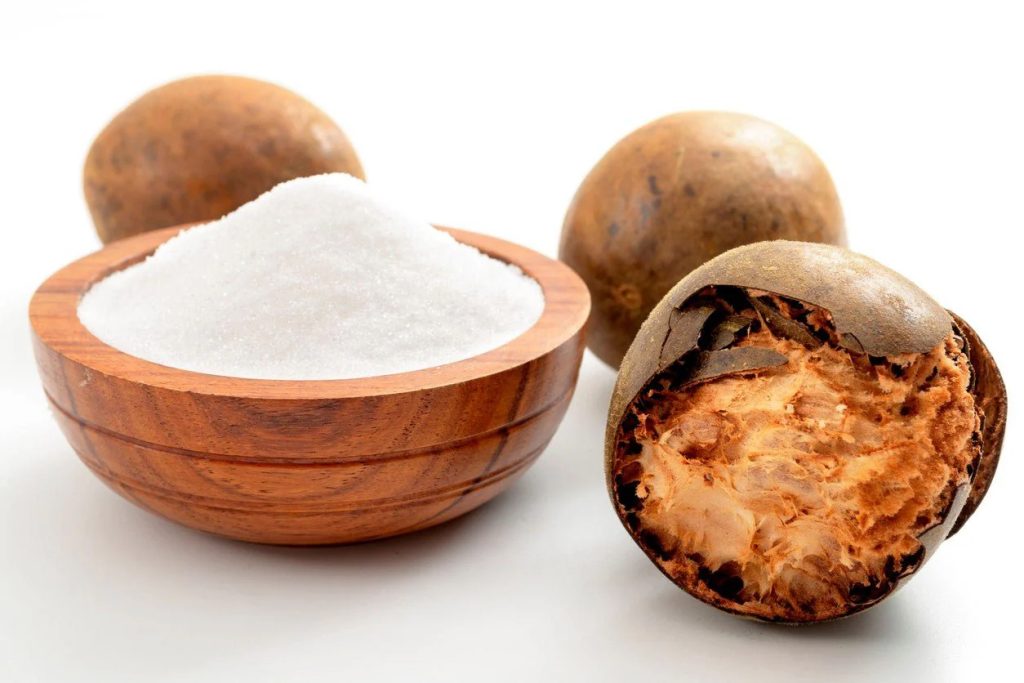
Monk Fruit Extract is a natural, zero-calorie sweetener derived from the Monk fruit (Luo Han Guo), a small melon native to southern China. For centuries, this fruit has been used in traditional medicine, but in recent decades, it has gained international recognition as one of the best natural sugar alternatives. Unlike refined sugar, monk fruit provides sweetness without spiking blood sugar levels, making it ideal for people who want to live a healthier lifestyle.
Monk fruit has been cultivated and used in Asia for more than 800 years. The sweetness of monk fruit extract comes from unique natural compounds called mogrosides, which are up to 200–300 times sweeter than regular sugar but contain no calories. This makes it an excellent alternative for those looking to cut down on sugar while still enjoying a naturally sweet taste.
Unlike artificial sweeteners such as aspartame or sucralose, monk fruit extract is completely natural. It is also heat-stable, meaning it can be used in hot drinks, baking, or cooking without losing its sweetness.
One of the biggest advantages of monk fruit extract is that it does not raise blood glucose levels. This makes it an excellent choice for people with diabetes, pre-diabetes, or those on low-carb diets who want a sweet option without the risks of sugar.
Because monk fruit extract has no calories, it helps people manage their weight without giving up sweetness. It can be included in everyday beverages like coffee, tea, or smoothies, and it allows you to enjoy indulgence without guilt.
Monk fruit mogrosides are powerful antioxidants. They help neutralize free radicals, reduce oxidative stress, and may support long-term wellness. Traditional Chinese medicine even used monk fruit to soothe coughs, sore throats, and digestive issues.
Unlike some artificial sweeteners that cause digestive discomfort or other side effects, monk fruit extract is well-tolerated and safe, even for children and pregnant women.
At Miracle Vision, we believe in creating wellness products that combine great taste with health benefits. That’s why Miracle Vision Gourmet Coffee Latte is naturally sweetened with monk fruit extract instead of refined sugar.
By using monk fruit extract, we ensure that every cup of Miracle Vision Gourmet Coffee is not just delicious but also supportive of a healthier lifestyle.
Monk fruit extract is more than just a sweetener—it’s a natural gift for modern wellness. Offering zero calories, blood sugar balance, and antioxidant support, it is a perfect fit for today’s health-conscious consumers. By blending this natural sweetness into Miracle Vision Gourmet Coffee Latte, we’ve created a product that allows you to indulge in your favorite drink while staying aligned with your health goals.
So the next time you sip your Miracle Vision coffee, remember: it’s not just coffee—it’s a carefully crafted balance of flavor and wellness.

Today’s Choice, Tomorrow’s Health
Copyright © 2025 Miracle Vision. All Right Reserved
Design & Developed by Webxkey